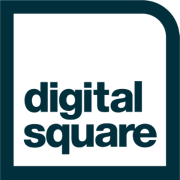Peer Review Committee
Digital Square's Peer Review Committee (PRC) comprises a diverse set of the foremost leaders and thinkers in digital health technology including country governments, donor organizations, implementing organizations, technology vendors, and other constituencies. The PRC plays a critical role as technical experts who assess the technical and programmatic appropriateness of submitted concept notes and applications through Digital Square Notices. The PRC provides feedback, which helps the Digital Square Board to prioritize investments in high-quality digital health products and services.
The Peer Review Committee is bound by the Peer Review Committee Membership Policy, which has been approved by the Board. Any substantive changes to the policies require board approval.
Current Membership
Digital Square's Peer Review Committee is comprised of the following individuals:
- Nelly Ale
- Saurav Bhattarai
- Sean Blaschke
- Pierre Dane
- Mark DeZalia
- Vikas Dwivedi
- Pape Gaye
- Siobhan Green
- Calum Handforth
- Matthew Hulse
- Carl Kinkade
- Greg Kuzmak
- Alain Labrique
- Cassie Morgan
- Stephen Musoke
- Chris Neu
- Walter Ndesanjo
- Emily Nicholson
- Netsanet Nigussie
- Alpha Nsaghurwe
- Marlon-Ralph Nyakabau
- Martin Osumba
- Manish Pant
- Daniel Rosen
- English Sall
- Rita Sembajwe
- Joseph Sitienei
- Solomon Simba
- Taufiq Sitompul
- Sanjay Sood
- Richard Stanley
- Felix Sukums
- Antonette Torres
- Olivia Velez
- Elizabeth Wala
- Uwe Wahser
- Jacqui Watson
- Ahmed Zaghloul
Digital Square Contacts
- Carl Fourie, PRC Chair and Deputy Director, Global Goods cfourie@path.org
- Maria Soc, Senior Program Assistant, msoc@path.org
- Caroline Osborne, Project Administrator, cosborne@path.org
